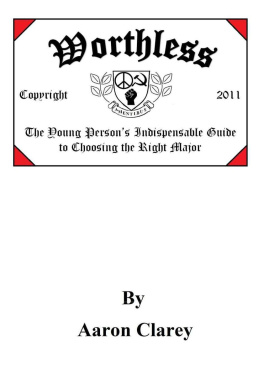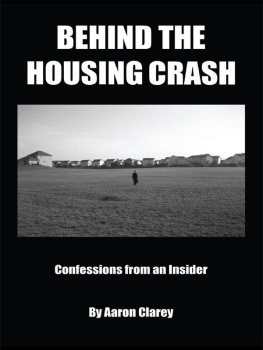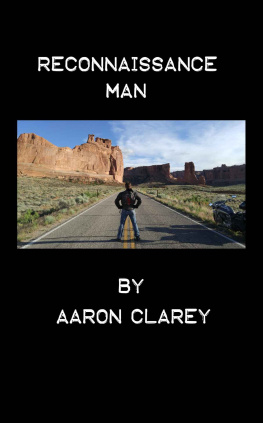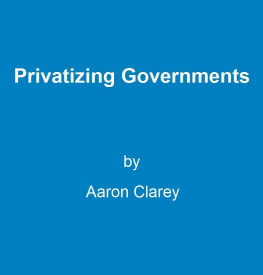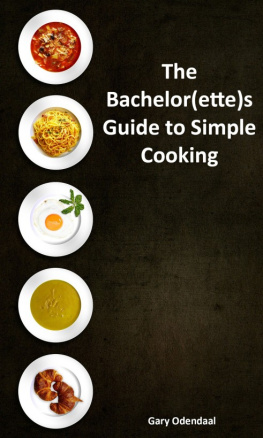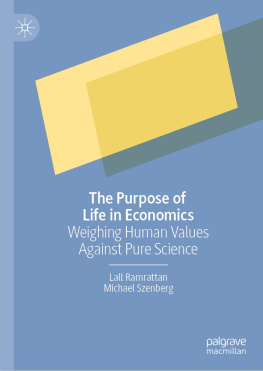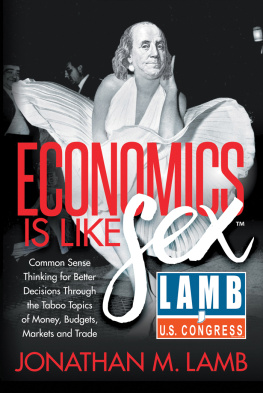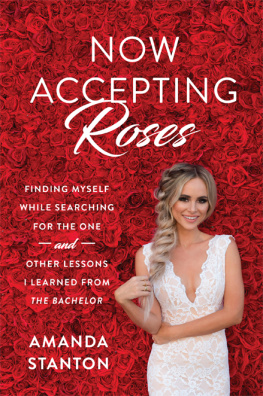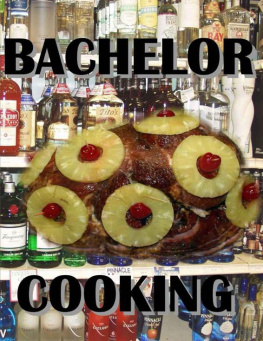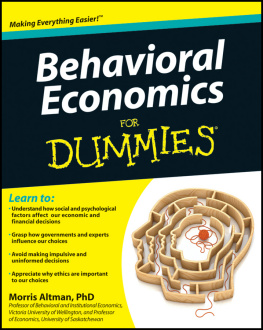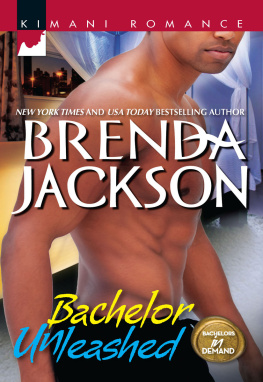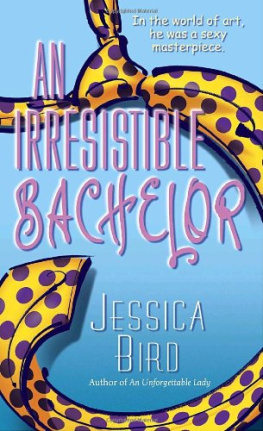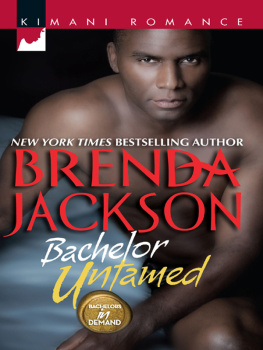BACHELOR PAD ECONOMICS
By Aaron Clarey

Copyright 2013 by Aaron Clarey. ALL RIGHTS RESERVED. This book contains material protected under International and Federal Copyright Laws and Treaties. Any unauthorized reprint or use of this material is prohibited. No part of this book may be reproduced or transmitted in any form or by any means, electronic or mechanical, including photocopying, recording, or by any information storage and retrieval system without express written permission from the author / publisher.
Table of Contents
To Khanh Le
FOREWARD By MARTY ANDRADE
Aaron Clarey saved my life.
Probably.
Maybe.
Let s just say he changed my life in a major way.
But let s not get too far ahead of ourselves. Ill have plenty of nice things to say about Aaron in a little bit. First, I want to make a difference in your life. I want to save you some time. I want to make your life better so you can enjoy whatever it is that you normally enjoy. So here it is...
Don t read Forewords.
Don t read Prefaces.
Don t read Afterwords.
And, depending on the internal structure of the book you re reading, dont read any Introductions either.
Why? These things are superfluous. They are not there to inform you, they exist to waste your time. The publishing industry treats these things as marketing tools; they re not really part of the book youre trying to read at all. They put them in there to give a book some cachet. Just ask yourself, when was the last time you were all hyper to read some great piece of marketing?
If you don t quite understand yet, lets go through it in easy to understand chunks.
In the Preface, the author tells the story of how and why his book came into existence. Which isn t important to us, since were handling the book, we know it exists, and we were interested enough in the subject that we didnt need the author pushing us along trying to prove to us why its so important to read his book. When was the last time you were reading an authors Preface and thought to yourself holy shit, I was totally not going to read this book, but this Preface has completely changed my mind.
For whatever reason, the book you re reading was written. For whatever reason, a copy of it is now in your hands (or e reader device, or whatever). The journey of the book from the authors brain to your hands has been accomplished. Just embrace how weird the world can be and start reading the stuff that intrigued you about the book in the first place. So, theres no reason to read the Preface.
Forewords are even worse. Firstly, if you ever see a Foreword improperly labeled Forward you can now laugh derisively at the person who put the book together. Hey idiot, its called Wikipedia, its free, and it has articles on what the parts of a book are supposed to be called. Welcome to 2003, the year after which no one ever has to remember anything anymore, thanks to Wikipedia and Google.
The Foreword is another piece of marketing. This time, it s someone other than the author trying to tell you how important the book is and why you should be reading it. The writer of the Foreword is supposed to be a respected person in the field the book is about. In effect, the Foreword is a celebrity endorsement of the book part of the book.
The problem is , if youre in the habit of reading good books, you will notice how those who write Forewords are never quite as good at writing Forewords as the author is at writing the book itself. In fact, normally the person writing the Foreword is a lesser writer than the actual author. My copy of Sun Tzus The Art of War has almost 200 pages of Prefaces, Forewords, Afterwords, Introductions and Historical Notes. And its all crap. Crap thats keeping you from the meat of the book.
Finally, it should be noted Introductions are a little tricky. Sometimes they really are necessary, and most textbooks have Introductions that aren t a total waste of time. But, once you get away from textbooks, the Introductions become another superfluous element. So, try skipping the Introduction. If youre completely lost after the first ten pages, go back read the Introduction. If not, screw it. Finish the book and get on with your life.
Depending on how many books you are going to read in your life, I just saved you a bunch of time.
Back to the primary topic of this Foreword.
Aaron Clarey and I have known each other for about a decade. We started out in radio about the same time together, and we both started blogging around the same time. We started writing books around the same time too. We both attended the University of Minnesota and live in that little slice of Soviet persistence, Minnesota. Eventually, he will convince me to learn how to ballroom dance, but thats a topic for another time.
I know Clarey, I know him well. And I can say this about him, Aaron Clarey is the one friend of mine who consistently made sense through the difficult times of my life. In fact, not only did Aaron make a lot of sense, at times his insights bordered on clairvoyance. Like many young men, I have had a difficult time making my way in America over the last ten years or so. I got one of those worthless degrees. I worked in the non profit sector. I went to grad school and went into debt while doing it. And I ended up working a low wage job in retail while counting pennies in order to splurge on a trip to Subway. Things were about as bad as they could be.
And Aaron knew why. If you re a regular reader of his, you already know all the mistakes I made, but they were a mystery to me at the time.
Over the last nine years, not only has Aaron been able to explain the causes of my problems, he also offered some treatment options. His book Enjoy the Decline gives a framework for a personal recovery from the destruction of America. Since I read it I have found a small patch of happiness in my life; a much larger patch than I had before, and one that continues to grow.
Aaron is the only person who has consistently made sense and provided workable solutions based in reality to the problems plaguing my life. And considering the number of people I know, the number of books I ve read, and the endless pile of economics and finance articles Ive consumed since the Housing Crash first put me out of work in 2009, thats saying something.
This book, along with Clareys earlier work Enjoy the Decline, contain all the workable solutions a young bachelor is going to need. At least, all the solutions youll need at the start of your adult life. Whats nice about a little bit of guidance is it can turn into a lifetime of good judgment, requiring you to seek no more guidance. As such, this book is among those I will be gifting to young friends and acquaintances for a very long time.
Marty Andrade,
December 2013
HOW TO READ THIS BOOK
The purpose of Bachelor Pad Economics is to be a reference guide for all men of all ages. Because of this it is not so much a novel that should be read from front to back, but rather topically consulted based on where you are in life. Ideally, you will have picked up this book at the age of 14 as making decisions early on have the greatest potential to improve your future. However, the book is incredibly thorough, providing guidance and wisdom for all men at all stages in life. It is chronologically organized addressing topics that affect younger men in earlier chapters (school, trades, auto repair, girls, etc.) and topics that affect older men in later chapters (retirement planning, estate planning, divorce, etc.).
I strongly recommend all men read chapters 1 3 regardless of where you are in life. These chapters lay down the foundations to financial planning, enjoying life, the philosophy of life, and provide a base by which additional chapters are built upon. If you wanted to do a quick and dirty read of this book, those three chapters will suffice, but for practical and specific advice you will want to consult additional chapters.


